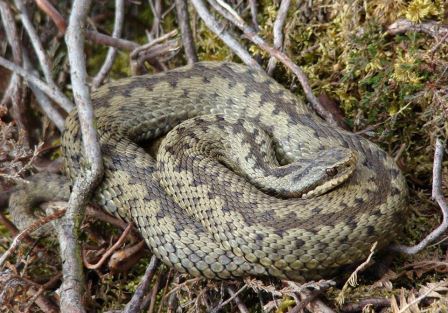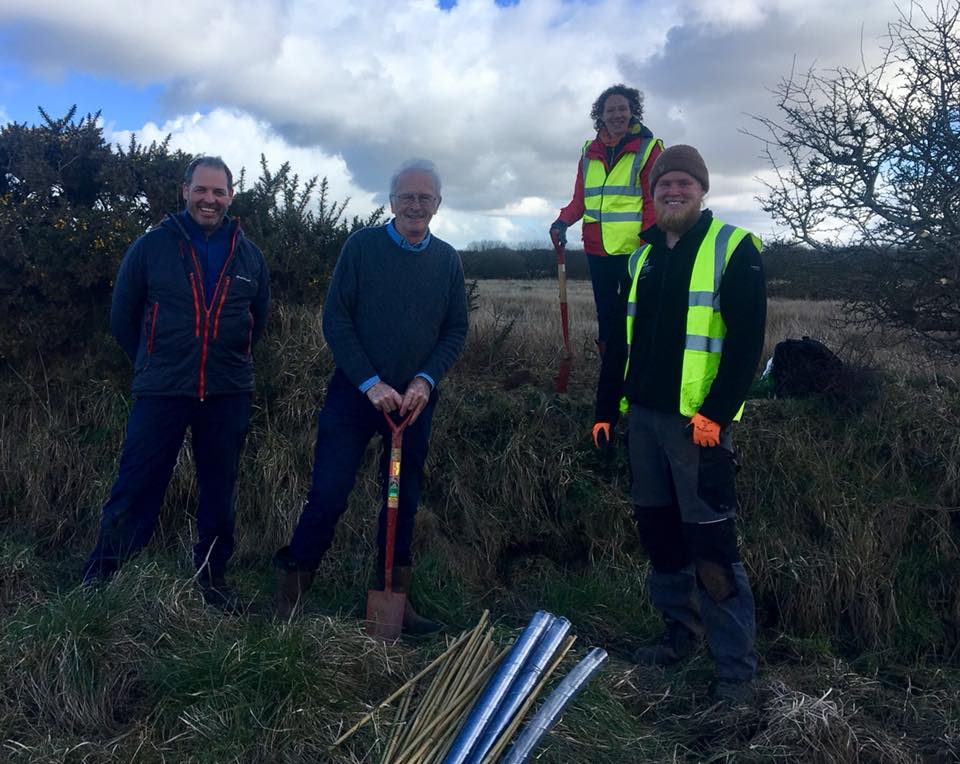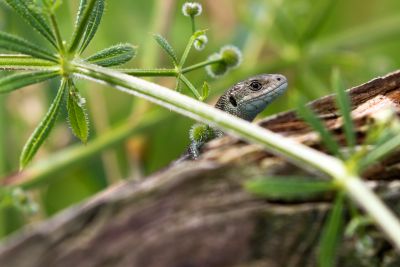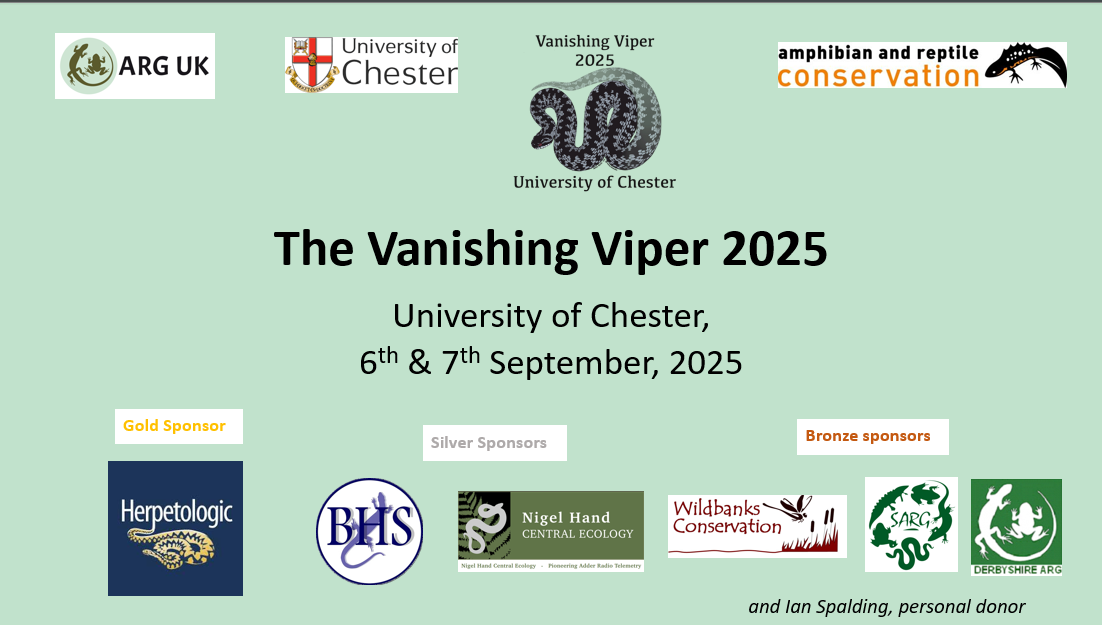Make the Adder Count: population trends from a citizen science survey of UK adders
Concern has been growing about the status of UK adder populations, with expert opinion reporting widespread declines. Assessing the true scale of these declines, however, has been hampered by a lack of quantitative data. Make the Adder Count began in 2005 as a national surveillance programme collecting standardised counts of adders lying-out after emerging from hibernation. 260 sites have contributed data, confirming a significant decline, on average, across sites with small populations, while the few with large populations (<10 % of sites) are weakly increasing. If these trends continue, within 15‒20 years, adders will be restricted to a few large population sites, significantly increasing the extinction risk for this priority species in the UK. Public pressure/disturbance was reported as the most frequent negative factor affecting sites, followed by habitat management and habitat fragmentation. Negative impacts from habitat management were reported almost as frequently as positive impacts, suggesting many management plans do not adequately consider the requirements of adders. The dataset also demonstrated earlier emergence among males, in warmer springs and at more northerly sites.
Citation: Gardner, E., Julian, A., Monk, C., & Baker, J (2019) Make the Adder Count: population trends from a citizen science survey of UK adders, The Herpetological Journal, 29 (January 2019), 57-70 https://doi.org/10.33256/hj29.1.5770 (open access)
pdf Download the full paper here (2.19 MB)
Advice Note 11: Managing Habitat for Adders: Advice for Land Managers, launched in May 2018
Recognising that habitat loss has been a major factor in the declines of adders that we have observed at so many sites across the UK, ARG UK have been working to distill the experiences of our adder surveyors into an advice note for landowners and land managers with adders on their sites. As well as input from the various ARG adder experts, we are grateful to the various land managers who have read and commented on the document, which can be downloaded here. We would also like to thank the Clark Bradbury Charitable Trust who provided the funding to help us develop the advice note, and test it at landowner workshops.
pdf 11. Advice Note 11 - Managing Habitat for Adders, Advice for Land Managers, May 2018 (3.51 MB)
Advice from Amphibian and Reptile Conservation on adder bites
Responding to recent reports of adder bites, mainly in coastal Wales and Scotland, our colleagues at Amphibian and Reptile Conservation have drawn together answers to some of the frequently asked questions about this sensitive issue. We would stress that UK-wide, adder bites are very rare, and there have not been any human fatalities in over 40 years, but in the event that a person or pet is bitten, there are effective treatments. Would would also stress that adders are a vulnerable species nationally, and we are concerned that without an improved understanding and respect for them they will reach the brink of extinction. Therefore, our aim is to enable people and adders to co-exist in a harmonious way.
For more information on the ARC FAQs follow this link:
The ARG UK Adder Campaign
The ARG UK Adder Campaign is our response to a reported significant UK-wide decline in populations of this iconic native snake. Evidence gathered by our volunteer ARGs suggests local extinction in at least three English counties, and we believe that the small and often fragmented populations we find across southern and central England may be equally vulnerable. The findings from the ARC 2012 Adder Status Project, our long running adder emergence study, ‘Make the Adder Count’, support this hypothesis, and although adders are undoubtedly doing well in some areas, we have a real concern that if we do not act now, then we may start to lose them altogether from parts of the UK.
This matters!! Apart from the intrinsic right these animals have to exist as part of the complex and delicate ecosystem of our beautiful planet, the adder is an important indicator species. They are extremely sensitive to disturbance and their disappearance is often the first harbinger of environmental degradation. Conversely, if they remain present in good numbers, then we know that the ecosystem is in a healthy state.
Following on from the ‘Vanishing Viper’ major two-day national adder summit, organised by ARG UK and ARC in 2016, the primary drivers for these declines appear to be habitat loss, degradation and fragmentation, and a concomitant increase in predation as animals become more exposed and vulnerable. However, adders also continue to suffer from human disturbance and persecution, particularly as habitats become more fragmented and human pressures have a greater impact. Many of the dead adders recently received through the Garden Wildlife Health Project (www.gardenwildlife.org.uk) have suffered from a blunt trauma, suggesting deliberate killing. Their public image is further worsened by the often ill-informed or hysterical coverage of adder bites within the media - often the only information the public see. This image needs to be addressed, both locally and on a national level.
What do we do?
The Adder Campaign seeks to address these concerns by:
- Supporting Amphibian and Reptile Conservation to help devise a Species Action Plan (SAP) for the Adder.
- Long term visual monitoring of spring emergence near hibernation sites through Make the Adder Count.
- Local action – a number of ARGs monitor adder populations in their own vice county. They use this information to advise land owners and land managers, and ensure that sensitive areas are sympathetically managed.
- Running training courses to teach volunteers how best to survey for reptiles, and support landowner action.
- Raising awareness by developing a creative and positive narrative that aims to: dispel the myths; engage and educate all members of the community about these often-maligned animals; and help develop a sense of community pride and ownership. Following on from the success of 'What's that Snake?', we have started a new project 'Adders are Amazing!', to work with communities in Pembrokeshire to develop these links.
What can you do?
- Join your local ARG, attend reptile training courses and join the survey effort.
- If you are already monitoring a local population of adders, consider submitting your results through Record Pool or Make the Adder Count, so that we can use the data to inform conservation.
- If you can’t get out into the field, support us by donating to ‘Adders are Amazing!’, and help us to protect one of the UK’s last important adder strongholds in Pembrokeshire.




